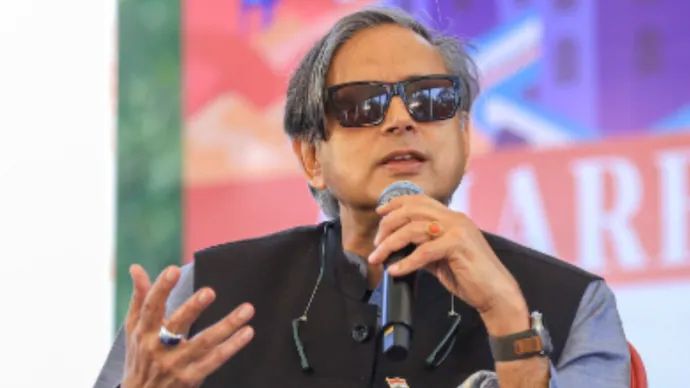In a major diplomatic push, senior Congress leader and former UN diplomat Shashi Tharoor is set to lead an all-party Indian delegation to the US, UK, and Japan to brief global leaders on Operation Sindoor, India’s latest counter-terrorism operation, and the escalating India-Pakistan conflict. The high-profile mission aims to rally international support against cross-border terrorism while presenting evidence of Pakistan’s alleged involvement in militant activities.
The delegation, comprising MPs from across the political spectrum, underscores India’s rare bipartisan unity on national security. With tensions rising in South Asia, this initiative could reshape global perceptions and strengthen India’s stance against terrorism.
Why Shashi Tharoor Was Chosen to Lead the Delegation
Shashi Tharoor’s selection as the head of this critical delegation highlights his diplomatic expertise and ability to articulate India’s position on the global stage. A former Under-Secretary-General at the UN, Tharoor has deep experience in international relations, making him the ideal representative for this sensitive mission.
Read Also: Shashi Tharoor Applauds PM Modi’s Leadership: A Shift in Congress’s Stance?
Key Reasons Behind Tharoor’s Appointment
-
Global Recognition: His extensive UN background ensures credibility with foreign governments.
-
Cross-Party Appeal: Unlike more polarizing figures, Tharoor commands respect across political lines.
-
Communication Skills: Known for his eloquence, he can effectively counter Pakistan’s narrative.
While the Congress initially proposed Rahul Gandhi for the role, the government preferred Tharoor for his non-partisan image and proven diplomatic track record.
Source: ANI News
Operation Sindoor: India’s Bold Counter-Terrorism Move
Operation Sindoor has emerged as a defining moment in India’s fight against terrorism. Launched in response to recent attacks on Indian soil, the operation targeted terror camps across the border, delivering a strong message to Pakistan-based militant groups.
What We Know About Operation Sindoor
-
Precision Strikes: Focused on eliminating high-value terror targets.
-
Intelligence-Based: Leveraged advanced surveillance and real-time data.
-
Minimal Collateral Damage: Designed to avoid civilian casualties.
The delegation will present classified evidence linking these operations to Pakistan’s Inter-Services Intelligence (ISI), aiming to pressure Islamabad into cracking down on terror outfits.
The All-Party Delegation: United for National Security
The delegation includes prominent leaders from major political parties, reflecting a rare consensus on foreign policy:
| Name | Party | Role |
|---|---|---|
| Shashi Tharoor | Congress | Leader |
| Eknath Shinde | Shiv Sena | Member |
| Kanimozhi | DMK | Member |
| Supriya Sule | NCP | Member |
| Asaduddin Owaisi | AIMIM | Member |
This diverse representation sends a powerful message: India stands united against terrorism, regardless of political differences.
Diplomatic Agenda: Key Meetings and Objectives
The delegation’s itinerary includes high-level meetings with:
-
US State Department officials
-
British Parliament members
-
Japanese Foreign Ministry representatives
Key Discussion Points
-
Pakistan’s Role in Terrorism – Presenting dossiers on ISI-backed militant activities.
-
India’s Counter-Terrorism Efforts – Highlighting successes like Operation Sindoor.
-
Global Cooperation – Seeking stronger sanctions against Pakistan-based terror groups.
Experts believe this could lead to increased diplomatic isolation for Pakistan and stronger counter-terror partnerships for India.
Source: Jairam Ramesh
Global Reactions and Expected Outcomes
The international community has been closely monitoring the India-Pakistan conflict, especially after recent escalations. The delegation’s efforts are expected to:
-
Counter Pakistan’s propaganda at the UN and other forums.
-
Secure stronger intelligence-sharing agreements with Western nations.
-
Push for financial sanctions on groups like Lashkar-e-Taiba and Jaish-e-Mohammed.
A US State Department insider noted, “India’s evidence-based approach is gaining traction. Tharoor’s team could tip the scales in their favor.”
Political Implications: Why This Mission Matters
While national security unites Indian politicians, the delegation’s composition has sparked behind-the-scenes debates:
Congress’s Dilemma: Tharoor Over Gandhi
-
Some Congress leaders privately wanted Rahul Gandhi to lead, seeing it as a chance to bolster his global profile.
-
However, the government insisted on Tharoor for his diplomatic finesse.
BJP’s Strategic Play
-
By including opposition leaders, the BJP showcases national unity ahead of elections.
-
Success could bolster PM Modi’s image as a strong leader on terrorism.
Read Also: Pakistan’s Deputy PM Sparks Controversy Over Fake “Operation Sindoor” Video
What’s Next for India’s Diplomatic Strategy?
Following the US, UK, and Japan visits, the delegation may expand its outreach to:
-
Germany – A key EU influencer.
-
France – A major defense partner.
-
United Nations – For a broader counter-terrorism resolution.
FAQs: Understanding the Delegation’s Mission
Q: Why is Shashi Tharoor leading this delegation?
A: His UN experience and cross-party appeal make him the ideal spokesperson for India’s counter-terrorism stance.
Q: What is Operation Sindoor?
A: A targeted military-intelligence operation against terror infrastructure in Pakistan.
Q: Will this delegation change global opinion on Pakistan?
A: It could lead to stricter sanctions and further isolate Pakistan diplomatically.
Conclusion: A Defining Moment in India’s Foreign Policy
The all-party delegation led by Shashi Tharoor represents a rare moment of political unity in India’s foreign policy. As the world watches, India’s ability to present a compelling case against terrorism could reshape South Asia’s geopolitical landscape.
With Operation Sindoor as the centrepiece, this mission isn’t just about diplomacy—it’s about securing India’s future in an increasingly volatile region.

